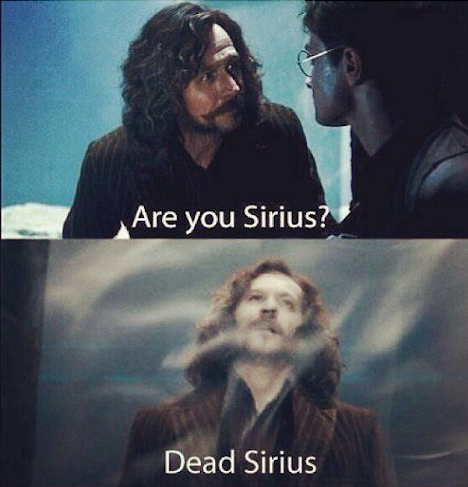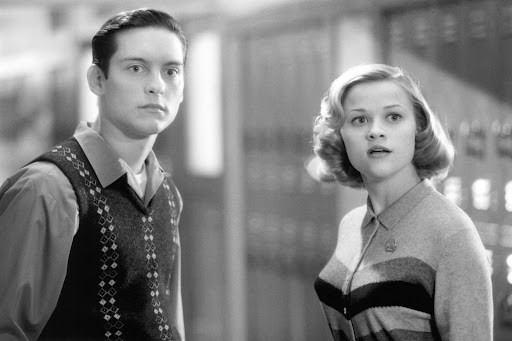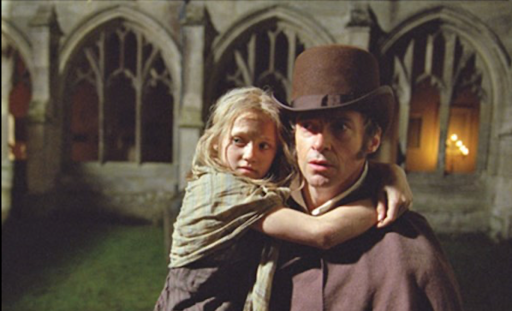TITANIC: Did the film have to end like that?
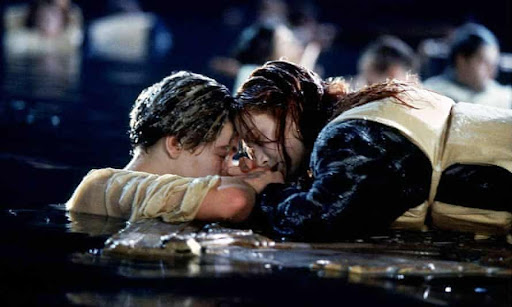
Jack and Rose in the movie ‘Titanic’.
*Spoiler Alert*
My favorite film is James Cameron’s 1997 film, Titanic. As the third biggest box office hit and with 11 Oscar wins, it is tied with two other films for most film Oscars. Moral of the story: Titanic is a CLASSIC. If you haven’t seen Titanic, and still have been saved from hearing how it ends, I suggest you don’t read this. Instead, go watch it on Netflix (as in — right now) if you don’t want the ending to be spoiled.
At the age of five, I watched the film for the first time. Confused about why my mom was watching a “shipwreck documentary,” I was immediately drawn into the story; the film quickly revealed itself to be more than what I thought it was. After three hours and thirty minutes, I finished it — in awe of the story I had just witnessed and its tragic ending. This tragic ending is the Jack Dawson Controversy that has come up again and again, even after twenty-four years. I want to explore this controversy more fully in this article. Bring your tissues, your Jack Dawson photos, and get ready to disagree with my opinions.
What is the “Jack Dawson Controversy?” Let me tell you (once again, if you still haven’t seen it and don’t want to be spoiled, leave and report to Netflix immediately)! Towards the end of the movie, following an iceberg collision, lovers Jack Dawson and Rose DeWitt Bukater are in the Atlantic Ocean as the Titanic ship sinks. Jack holds onto a floating door as Rose lays on top of it (your last warning – spoiler alert!). Waiting for the lifeboats to return, Rose waits shivering and losing hope as each second passes, as she watches Jack die of hypothermia. Eventually, the lifeboats save her, but the ship’s crew members are delayed, and the majority of passengers have passed away. So much for tech-pride, as the builders of this new and better liner overestimated its invincibility. Once the surviving crew and passengers make it to the Carpathia, which is the ship that rescued all of the survivors, Rose changes her name to Rose Dawson. Later, when she finally marries, she changes her name to Rose Dawson Calvert; the fact that she kept Dawson, in memory of the lover she never married, is significant and romantic.
Why did Jack have to die? Could Jack have fit on the door? Well, here’s my opinion from a person who has seen Titanic more times than I can count. The short answer: yes — Jack Dawson had to die. I know it’s crazy, but after a decade of thinking “why did he have to die?”, I finally realized that he had to because that was the whole point of the film. James Cameron did not write an epic romance that takes place on Titanic just for fun (well, I guess partially, yes he did). But, he made a film primarily to demonstrate to people how it felt for people to lose loved ones on Titanic; he wanted the audience to feel what other people felt on an emotional level. This reason is often why films are made: to make people connect on a deeper level and stand in someone else’s shoes, rather than your own. Because of this viewpoint, one of the two main characters had to die. If one of the two did not die, then audience members would feel relieved that Jack and Rose both survived after being on the precipice of death countless other times throughout the film, and they would not understand on a deep level what it was like to lose someone. Sure, the audience would still feel sad for the people who did die; but, inevitably, when you watch a film, you root for the protagonists and connect with them because you go through challenges and their evolution with them and know them by the end of the film.
So now, why couldn’t Rose have died instead of Jack? If Rose died, the whole plot would not make sense. Rose’s character has a character arc; she grows as she becomes freer and more in control of her life. At the beginning of the film, Rose narrates: “It was the ship of dreams to everyone else. To me, it was a slave ship, taking me back to America in chains. Outwardly, I was everything a well brought up girl should be. Inside, I was screaming.” Rose was locked up, with no freedom as she is engaged to Cal, a man she does not love, and who does not respect her. Earlier on, Rose is fed up with her life and people telling her what she can and can not do; she is understandably upset that her life is planned out for her.
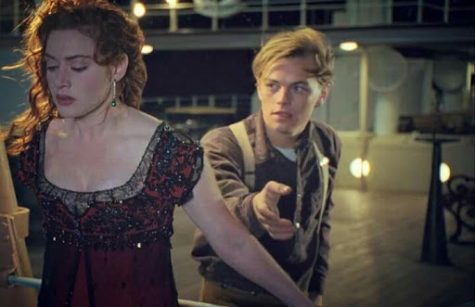
In a climactic scene early in the movie, Rose tries to kill herself by jumping off of the Titanic, but guess who shows up to save her? You guessed it, Spiderman! No, I’m just kidding, Jack Dawson saves her. He finally gets her to come off the railing as he explains: “You let go, and I’m, I’m gonna have to jump in there after you.” Throughout the film, they bond and fall in love at the iconic “I’m flying” scene when Rose and Jack kiss for the first time. Rose choosing to step down and embrace Jack signals Rose choosing freely instead of submitting to her family. At the end of Rose’s story, Older Rose exclaims: “And he saved me… In every way that a person can be saved.” Jack Dawson reveals life and freedom to Rose and establishes that it is HER choice and life, no one else’s. Rose becoming freer throughout the film can also be seen through her costumes as they gradually become looser and less restricting, just as Rose breaks from her family’s binding chains and power over her.
So, once again, Why couldn’t Rose have died? First, if she died, that would make no sense in the story. As we follow her (because she is the narrator), we see how she grows into someone who has the desire to live and be free compared to her wanting to die in the beginning. If she had this amazing character arc of discovering herself and her life and then dying, that would be a really depressing and pointless movie. Second, Jack Dawson wanted to live while Rose wanted to die, but Jack died so Rose could live. As Jack dies, he exclaims to Rose: “You’re gonna die an old, an old lady. Warm in her bed. Not here. Not this night. Not like this. Do you understand me?” Rose keeps her promise and lives a life as Jack helps her discover, which would not have the same dramatic effect if Jack survives. Jack is truly the hero of the story, saving Rose, which is the reason for Jack in Rose’s character arc. He played an important role in saving Rose. He needed to teach Rose how to live.
But could Jack have survived and fit on the door with Rose? After a long battle of buoyancy, and fitting on the door, it was answered by MythBusters who tested this and finally found a way for Jack to survive. Jack could have survived if Rose took off her life vest and tied it underneath the door for it to float as both Jack and Rose lay on it. Check out a video of this discovery.
I think it is also good to mention that Jack did try to fit on the door with Rose but ultimately failed. It’s not that obvious; but, if you look explicitly for it, you can catch that detail. However, The Guardian rebuttals from this experiment and states: “What about the lifejacket theory, though? What if Rose did the honourable thing and gave hers up? In water that cold (around -2.2 celsius at the time of the boat’s sinking), Jack would be unconscious within 15 minutes of first going in – and he’d already been in there for a fair old while before even getting round to trying to affix a lifejacket to a bobbing piece of wood. More importantly, even modern lifejackets top out at a buoyancy of 275N (Newtons), which still leaves our pair a full 419N over. In other words, after all that faffing about, they’d sink anyway.” So Jack would have died even then? It seems so.
After years and years of being upset at Cameron for making Jack die, I have finally realized that Titanic would not be the same, nor truly make sense, if he did not. If neither Rose or Jack died, I don’t believe Titanic would be as talked about as it is today. We often remember events in history of tragic deaths or tragedies that make us confused and enraged because we cannot get over the fact that such an event occurred. Love is the major theme of the film, and the greatest love is sacrificing yourself for someone else. Thus, Jack’s death demonstrates the greatest form of love.
Do you think Jack had to die?

Abbie Lindblad ‘24, Staff Writer




